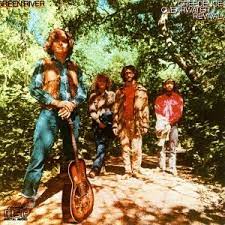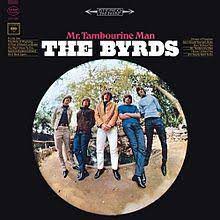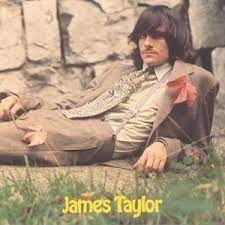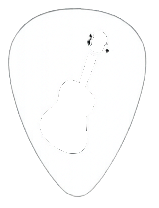7 Classic Guitar Songs by Lobo You Can Learn Today
Lobo carved out a unique space in the soft rock and folk-pop scene of the early 1970s with his easygoing voice and heartfelt lyrics.

In this collection of guitar tutorials, you'll learn how to play 7 of his most memorable songs — all arranged for acoustic guitar.
Whether you’re a fan of timeless hits like “Me and You and a Dog Named Boo” or the emotional ballad “Don’t Expect Me To Be Your Friend,” each lesson is designed to keep things beginner-friendly while capturing the soul of the original recordings.
🎸 Overview Video - “Watch This Preview of My Best Lobo Guitar Songs”
Soon.
Best Lobo Guitar List
1. Don't Expect Me To Be Your Friend2. How Can I Tell
3. I'd Love You To Want Me
4. It Sure Took A Long Long Iime
5. Me & You & A Dog Named Boo
6. Rings
7. Stoney
1. Don't Expect Me To Be Your Friend
- Learn To Play On Guitar
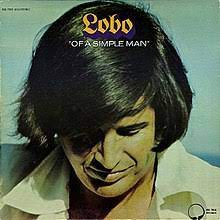
Don't Expect Me to Be Your Friend is a prominent track from Lobo's second album, Of a Simple Man, released in 1972.
As a single, it was a significant success, peaking at number 8 on the Billboard Hot 100 chart. The song also became his third number one hit on the Billboard Easy Listening chart, cementing his status as a soft rock icon.
A compelling piece of trivia is that the lyrics describe a man who is still in love with his ex and cannot handle a platonic friendship, a relatable theme that resonated with audiences.
The single's success helped propel the album to number 37 on the Billboard 200.
Chords And Strumming
I play this one in standard tuning with some lead and the chords D, Em, A7sus, A7, G, A, A/Db, Bm, Bm/A and a D/Gb. For rhythm play a down up down up pattern with some arpeggio bass notes and some hammer-ons blended into the strumming.
Guitar Lesson Details - (chords & lyrics sheet incl with lesson)
Chords & LyricsBack To Song List
2. How Can I Tell - Learn To Play On Guitar
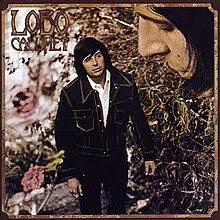
How Can I Tell Her is a featured track on Lobo's third studio album, Calumet, released in 1973. The song was released as a single and became another Top 40 hit for him, reaching number 22 on the Billboard Hot 100.
It also found success on the Adult Contemporary chart, peaking at number 4. The song's narrative of a man torn between two women—his current partner and a new love interest—showcased Lobo's knack for storytelling within a gentle, acoustic-driven melody.
The Calumet album itself peaked at number 128 on the Billboard 200 chart.
Chords And Strumming
I play this in standard tuning with a bit of arpeggio in the beginning and then a root up down up root up down up rhythm pattern. No lead work with the chords D, Em, A7, G, Gbm, A and Bm.
Guitar Lesson Details - (chords & lyrics sheet incl with lesson)
Chords and LyricsBack To Song List
3. I'd Love You To Want Me - Learn To Play On Guitar
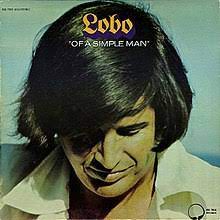
I'd Love You To Want Me is the breakout smash from the 1972 album Of a Simple Man. It is Lobo's highest-charting song on the Billboard Hot 100, where it spent two weeks at number 2.
The single was a massive international success, hitting number 1 in several countries, including Australia, Canada, and Germany, and topping the US Easy Listening chart. Interestingly, the song was originally earmarked for The Hollies, but they demanded a co-writing credit for changing a single line, which Lobo refused, leading him to record it himself.
His decision paid off, as it became a gold-certified record and his signature song.
Chords And Strumming
I use a capo 3rd fret here with a down down up down up down up and repeat rhythm pattern. Some lead with the chords G, Am, C and D.
Guitar Lesson Details - (chords & lyrics sheet incl with lesson)
Chords & LyricsBack To Song List
4. It Sure Took A Long Long Time - Learn To Play On Guitar
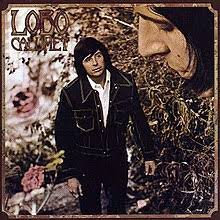
It Sure Took A Long Long Time appears on the 1973 album Calumet. Released as a single, it continued Lobo's streak of hits, peaking at number 27 on the Billboard Hot 100.
The song was particularly successful on the Adult Contemporary chart, where it reached number 3. The track is known for its relaxed, folksy vibe and reflective lyrics about the passage of time in a relationship.
It served as the lead-off single for the Calumet album, setting the tone for a record that further established his soft rock sound.
Chords And Strumming
For this one play a down down up down up down up rhythm pattern in standard tuning and capo on the 1st fret. The chords here are D, Dmaj7, Em, A7sus, A7, A, Em, Bm, Gbm and a G.
Guitar Lesson Details - (chords & lyrics sheet incl with lesson)
Chords & LyricsBack To Song List
5. Me & You & A Dog Named Boo - Learn To Play On Guitar
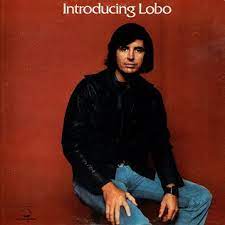
Me and You And A Dog Named Boo can be found on the album "Introducing Lobo," released in 1971 and was written by Lobo (Roland Kent LaVoie).
The track was released as a single in and reached number 5 on the Billboard Hot 100 chart and became one of Lobo's most successful songs.
While contemplating what else to write, his German Shepard dog named Boo began staring at him thru the glass doors from the backyard and a song was born. The song was his 2nd most successful behind I'd Love You To Want Me.
As music videos were not widely produced during the time of the song's release, there is no official music video for "Me and You and a Dog Named Boo."
Chords And Strumming
This one is played with a capo on the 4th with a steady down up down up and repeat rhythm pattern. Play the chords D, G, A and a C with one slide pattern and you're good to go.
Guitar Lesson Details - (chords & lyrics sheet incl with lesson)
Chords & LyricsBack To Song List
6. Rings - Learn To Play On Guitar
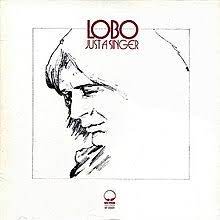
Rings thee song hails from his "Just A Singer" album.
Eddie Reeves and Alex Harvey who worked at United Artists Music, co-wrote this for a friends wedding. As fate would have it, copies of the version got around and eventually was recorded by several artists including Cymarron out of Memphis, country artists Tompal & The Glaser Brothers as well as Lonnie Mack.
Lobo in released his and it peaked at #43 on Billboard.
Chords And Strumming
This one is played in standard tuning and no lead with a down down up down up down up and repeat rhythm pattern. Chord in this one are C, F, G, Am and Am/G.
Guitar Lesson Details - (chords & lyrics sheet incl with lesson)
Chords & LyricsBack To Song List
7. Stoney - Learn To Play On Guitar
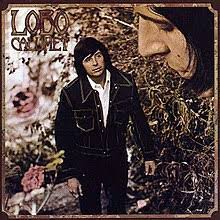
Stoney is a fan-favorite track that first appeared on the 1973 album Calumet. While it was not released as a single in the United States and therefore did not chart on the Billboard Hot 100, it gained significant popularity through album play and word-of-mouth.
The song is a story-song about a free-spirited girl named Stoney, a character who embodies an innocent, happy-go-lucky approach to life. Over the years, it has become a staple of Lobo's live performances and is often cited by fans as one of his most enduring compositions, despite its lack of initial chart success.
The song's enduring appeal led to a re-recorded version on his 2008 album Out of Time and a live version released as a single in 2025.
Chords And Strumming
Only a three chord song here of G, D and C in standard tuning and a capo 3rd fret. Some picking with a root down root up down up and repeat rhythm pattern.
Guitar Lesson Details - (chords & lyrics sheet incl with lesson)
Chords & LyricsBack To Song List
These Lobo guitar tutorials are perfect for anyone who enjoys mellow, melodic songs with simple chord progressions and meaningful lyrics. With a blend of soft rock, folk, and country-pop influences, Lobo's music continues to resonate with players of all skill levels. Scroll through the song list below and start learning your favorites — one chord at a time.
If you liked this best Lobo guitar Songs page you might also like ... (click images)
Popular Songs From The 60s
